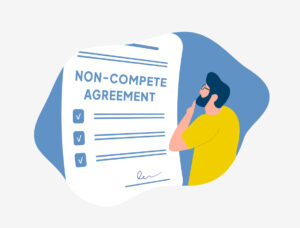These are the questions hiring managers should be ready to answer during an interview
Here are three tough questions candidates may ask during an interview, and advice on how you should respond.

Since the start of the Great Resignation, millions of employees have decided to leave their jobs to pursue better-aligned roles which offer them greater satisfaction. In 2021 alone, over 47 million Americans decided to quit their jobs for better pay, increased freedom, or to find a career that is more in-line with their values.
This statistic may initially sound disheartening, but it actually presents employers with an unprecedented opportunity for growth. Employers are being called to look at their hiring and candidate selection processes to determine whether the candidates they are interviewing are going to be suitable for the roles they are applying to fill. Companies must also ensure they are being recognized as an employer of choice, so that they can successfully compete to obtain high-performing employees. If these objectives are approached openly, they present employers with the chance to position their place of employment as the ideal long-term fit for candidates.
Today’s candidates are better prepared than ever to ask hard-hitting questions during job interviews, many of which are used to evaluate the true levels of compatibility they and their interviewers perceive. Employers must be real, candidly responding to even the most difficult questions. Below are three tough questions candidates may ask during an interview and advice on how you should respond.
How do you think somebody like me might work out or fit in at your company?
As a manager, you should come into a job interview with a deep understanding of the skill sets and qualities your company is looking for in a candidate. Take into consideration the dynamics of the team with whom the candidate will be working. How do they collaborate? How do they best communicate with each other? Where could the company use new or improved skills and can the candidate you are meeting with provide those skills?
Be candid and name any hesitations you have about a candidate so that they have an opportunity to address your doubts. It neither helps your company, nor your interviewee, if you minimize any concerns during the interviewing process. Instead, explain why you think they would or would not fit in with the culture, what their day-to-day would look like and the rigor of the tasks they would be expected to complete, along with both the hard and soft skills a prospective employee requires to thrive alongside your company.
What are some reasons people stay long-term at this company to build their careers?
It is vital that you are as specific as possible when sharing your own experience with the business. Give multiple examples that showcase the reasons why you remain loyal to your organization. Add on any reasons that other associates cite for staying with the company, whether this revolves around flexibility, prioritization of employee wellbeing, or their compatibility of goals.
Express the values of your company and its workplace culture in-depth. Discuss your career development plan and the opportunities for growth that you or your peers have experienced in the past few years. Also, share the way that leaders have stepped up to enhance the contentment of employees.
What are the changes that you would like to see at your company?
Understandably, every company has room for improvement. You might fear that transparently discussing problematic areas of your company will turn away the interest of candidates searching for professional perfection. However, candidates are not looking to tear apart your organization, they simply want insight into what to expect if they decide to work there.
Approach this question by clearly outlining the areas you feel need to be improved upon and explain why you feel this way. Disclose what your organization is planning to do or what initiatives are already being executed to ensure that this issue is resolved. Make sure to address that change is coming and that your company is going to evolve.
Rod McDermott is the CEO + Co-Founder of Activate 180, which helps companies elevate employee performance, productivity, and happiness through affordable coaching for all. He is also the CEO + Co-Founder of McDermott + Bull, one of the fastest-growing executive search firms in North America with offices domestically and internationally.






